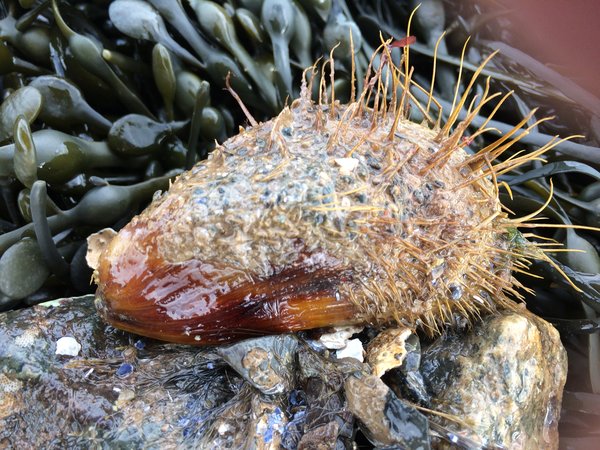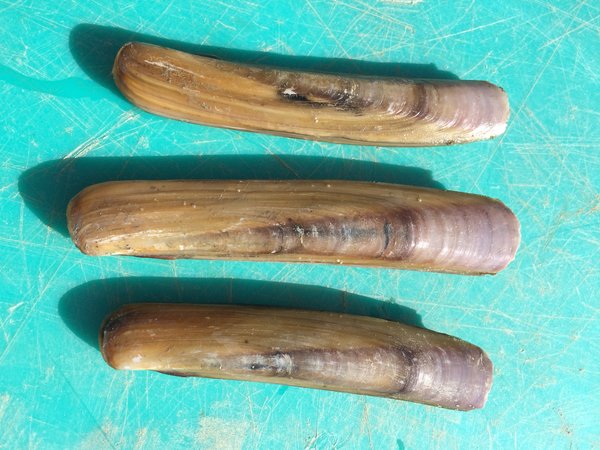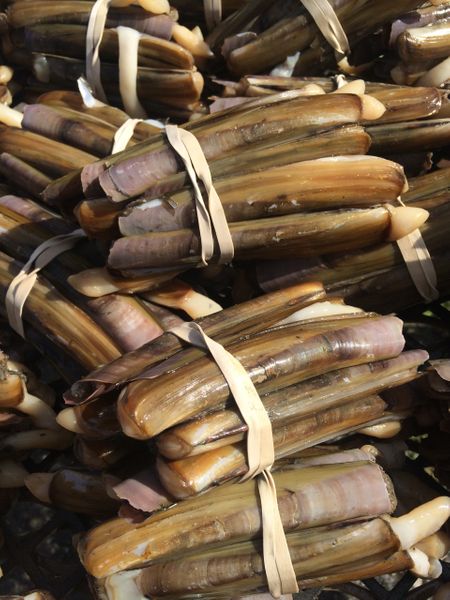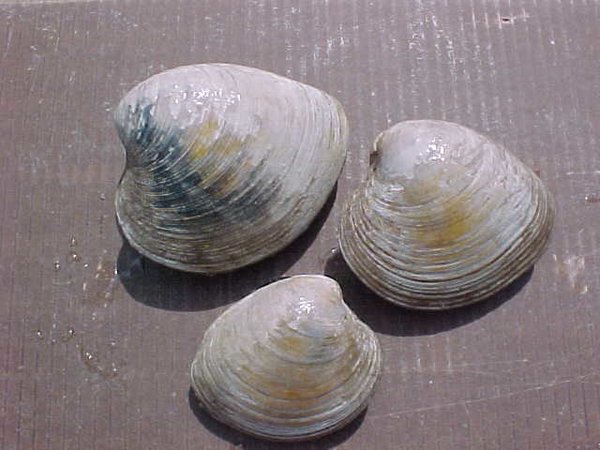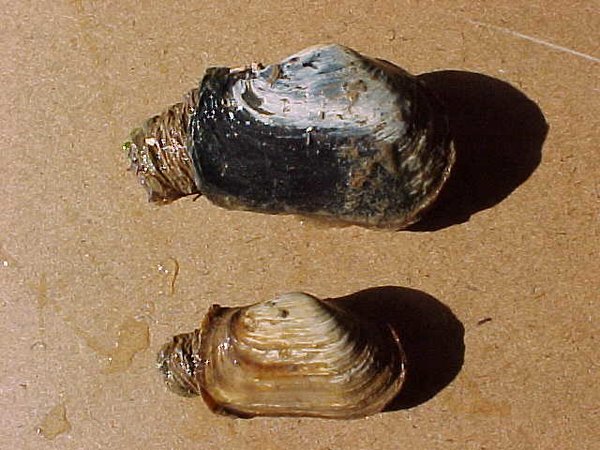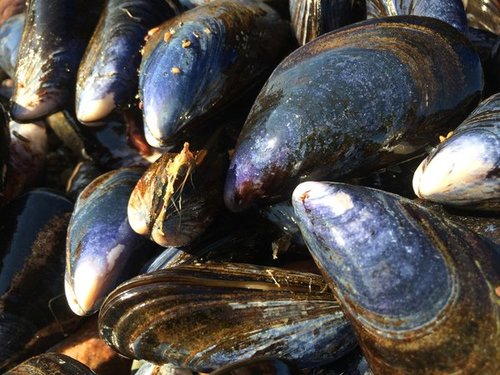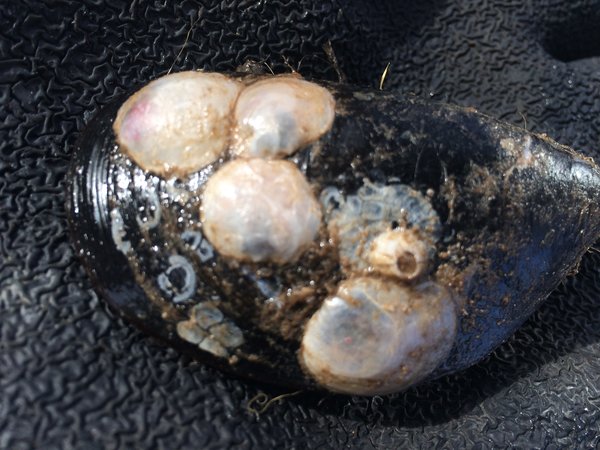Horse Mussel (Modiolus modiolus)
Horse Mussel (Modiolus modiolus)
Common name: horse mussel
Scientific name: Modiolus modiolus
Locations: on rocks in lower intertidal, kelp beds
Seasonality: available year round
Colors: brown and black shells
Size: 2” - 4"
Collected: by hand
Quantity: sold by the each
Tidepool Tim says, “If you find a large mussel shell on a beach in Maine it is most likely a horse mussel. The shells have a very pretty sun-bleached purple color when washed up on the high tide mark. Horse mussels come in all sizes of course and are an important species that creates bottom habitat for many other intertidal animals and plants. Most kelp species for instance attach their holdfasts to horse mussels as do sea lettuce, dulse, irish moss, and laver. Once these seaweeds start growing on the mussels along come the invertebrates that feed on the weed and on other invertebrates. Sea spiders, tunicates, anemones, sponges, worms, crabs, cucumbers, and urchins all follow the seaweeds making for some very nice diverse species habitat. unfortunately for the horse mussel it is the seaweeds that invariably lead to their demise. As the kelp grows in size it becomes quite a weight for the byssal threads of the mussel to endure. Along comes a wind-storm and eventually the mussel & seaweed & all of the other organisms get washed ashore. The end has come and in that place on the seafloor a bare spot has now been created. mussels are filter feeders and they spawn in the summer months. Humans do not like the taste of horse mussels and so they are not considered a commercial seafood species. We like them in our aquaria as they come with a host of other species and make it so easy to populate our tanks.”


